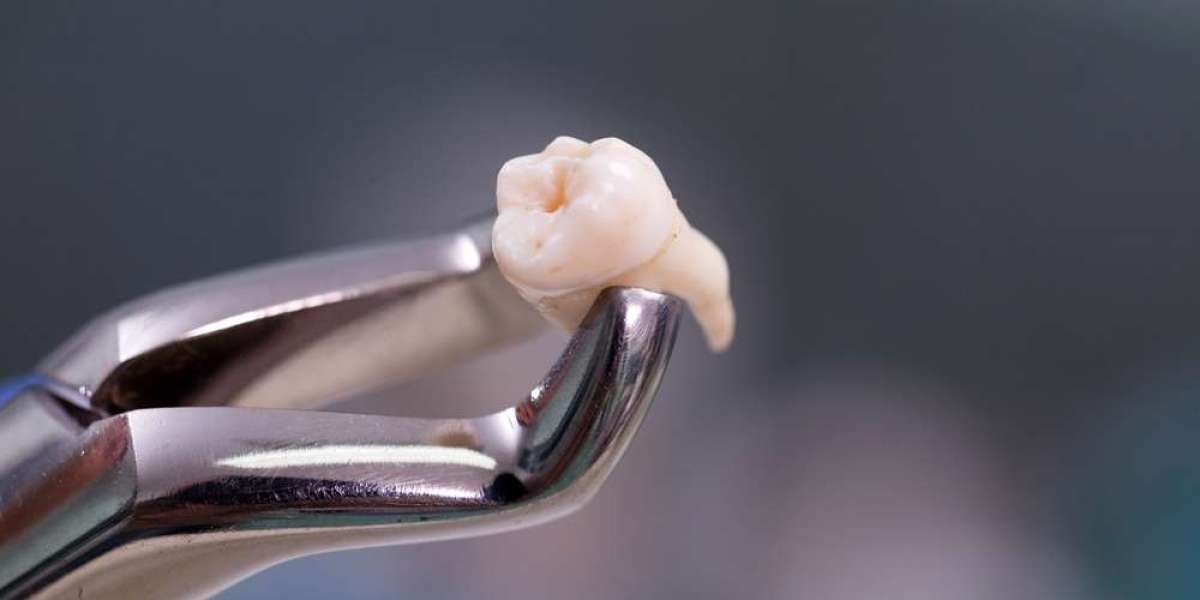Tooth damage is a common dental concern that can range from minor enamel erosion to severe decay or trauma. The good news is that not all damage leads directly to extraction. With early detection and modern dental treatments, many cases can be reversed or effectively managed. Clinics offering Dental Extractions in Dubai frequently focus on conservative care, aiming to preserve your natural teeth whenever possible. But how do you know if tooth damage is reversible—and when is extraction truly the only option?
Understanding Different Types of Tooth Damage:
Tooth damage can occur due to various factors, each with different implications for whether the tooth can be saved.
Enamel erosion from acidic foods or stomach acid
Tooth decay caused by bacteria and poor oral hygiene
Cracks or fractures from accidents or biting hard objects
Wear and tear from grinding (bruxism) or aging
Infection or abscess resulting from untreated cavities
Identifying the type and extent of damage is the first step in determining whether reversal or restoration is possible.
When Tooth Damage Can Be Reversed:
In its earliest stages, certain types of tooth damage can be halted or even reversed with non-invasive treatments.
Remineralization with fluoride toothpaste or professional varnishes
Sealants applied to early-stage decay-prone areas
Diet changes to reduce acid exposure and improve enamel health
Improved oral hygiene to stop bacterial progression
Regular cleanings to remove plaque and tartar before they cause decay
These preventive and restorative strategies are most effective when tooth damage is detected early.
Dental Treatments That Can Prevent Extraction:
Even when damage goes beyond the enamel layer, restorative dentistry often provides solutions that avoid extraction.
Fillings restore teeth with small to moderate cavities
Inlays and onlays strengthen more extensively damaged areas
Crowns protect teeth weakened by cracks or large fillings
Root canal therapy treats infection while preserving the tooth structure
Gum treatments like scaling and root planing can reverse early periodontal disease
These procedures help preserve the natural tooth and maintain overall oral health.
Signs That Tooth Damage Has Gone Too Far:
Unfortunately, some tooth damage becomes so extensive that extraction is the only safe and effective option.
Severe, persistent tooth pain that doesn’t respond to treatment
Large cavities that leave too little structure to support a filling or crown
Cracks below the gumline that compromise the root
Recurring infections or abscesses despite previous treatment
Advanced periodontal disease causing loose or shifting teeth
In such cases, extraction is often recommended to prevent further complications, including bone loss and spread of infection.
How to Monitor and Catch Tooth Damage Early:
Being proactive with your oral health can help identify and reverse issues before extraction becomes necessary.
Schedule dental checkups every six months
Ask your dentist about weak spots or early decay
Note any symptoms like sensitivity, discoloration, or mild discomfort
Take X-rays when recommended to detect hidden problems
Stay alert to changes in your bite, gum health, or jaw alignment
Consistent dental care and communication with your provider increase your chances of saving a damaged tooth.
Lifestyle Habits That Protect Teeth from Further Damage:
Preventing additional wear or decay is just as important as treating existing damage if you want to avoid future extractions.
Brush twice daily with fluoride toothpaste
Floss every day to prevent gum disease and decay between teeth
Wear a nightguard if you grind your teeth
Avoid chewing hard objects like ice or pens
Limit sugary and acidic foods and drinks
These simple lifestyle adjustments can significantly reduce the risk of severe tooth damage over time.
Role of Professional Support in Avoiding Extractions:
Dentists play a critical role in helping patients keep their natural teeth for life. With the right guidance and treatment plan, even moderately damaged teeth can often be saved.
Comprehensive exams identify at-risk teeth before symptoms appear
Customized treatment plans address individual needs and damage types
Preventive therapies like fluoride, sealants, and cleanings stop early problems
Patient education empowers you to take better care of your teeth daily
Timely intervention keeps minor issues from becoming severe complications
In Dubai, dental practices specializing in Dental Extractions in Dubai emphasize saving teeth first and extracting only when necessary.
Final Thoughts:
Tooth damage does not automatically lead to extraction. With modern dental tools and treatments, many conditions can be reversed or managed to preserve your natural teeth. The key lies in early detection, consistent dental care, and understanding when intervention is needed. Whether you're facing enamel erosion, a cavity, or gum problems, don't wait until the damage becomes irreversible. If you're unsure whether your tooth can be saved, consult a trusted professional. Clinics offering Dental Extractions in Dubai will assess your condition and prioritize saving your teeth whenever possible. Remember, prevention and early action are the most powerful tools for keeping your smile intact.


